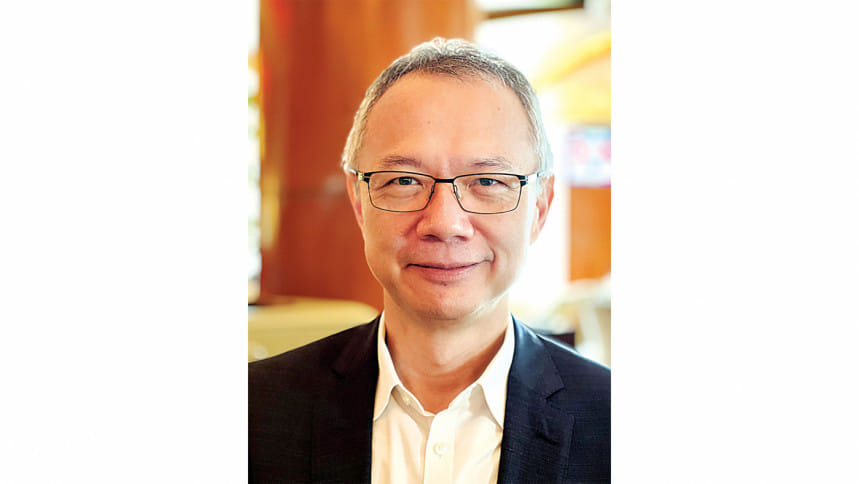Understanding liver functions, lifestyle choices & treatment options for liver health

Dr Lui Hock Foong is a gastroenterologist and liver transplant specialist practising at Gleneagles Hospital in Singapore. With a focus on digestive disorders and liver diseases, Dr Lui offers comprehensive care to patients with both common and complex conditions.
In a recent interview with The Daily Star, Dr Lui shed light on the functions of the liver and discussed various aspects of liver health and treatment options. Dr Lui emphasised that the liver acts as a multifunctional factory, carrying out vital processes such as manufacturing proteins, warehousing essential substances, and detoxifying waste products.
When it comes to maintaining a healthy liver, Dr Lui highlighted three key lifestyle factors. Firstly, striking a balance between exercise and food intake is crucial. Excess energy from food, regardless of its source, can be converted into fat and stored in the liver, potentially leading to fatty liver disease. Secondly, excessive alcohol consumption can also harm the liver, making it important to moderate alcohol intake. Finally, minimising exposure to viruses, such as Hepatitis C, is essential for liver health.
Dr Lui noted that fatty liver disease has become a significant problem worldwide, surpassing viral liver diseases in some regions. While medications are still being developed to combat fatty liver disease, lifestyle changes remain the primary treatment approach. Increasing physical activity and reducing excessive fat intake can help the liver utilise stored fat as energy. Dr Lui emphasised that reversing fatty liver is possible in the early and moderate stages, but once it progresses to advanced stages, such as cirrhosis, the damage becomes irreversible.
To detect fatty liver, Dr Lui recommended initial screening with blood tests and ultrasound. If further evaluation is needed, more precise tests like FibroScan or MRI-based techniques can provide additional insights without resorting to invasive biopsies. Regular check-ups every six months, including blood tests and monitoring weight, are advised for individuals at risk.
In cases where liver disease has progressed to an advanced stage and medical treatments are no longer effective, liver transplantation may be necessary. Dr Lui stressed that liver transplantation is a complex surgery but has a success rate of over 95%. Transplant recipients need to be aware that lifelong medication is required to prevent rejection and that suitable donors must have a healthy liver, preferably of the same blood group.
Dr Lui highlighted the advancements in liver transplantation, making the procedure safer and more successful than ever before. He emphasised the importance of awareness and regular check-ups to catch liver diseases early, when they are more treatable.
In conclusion, Dr Lui's insights provide valuable information on liver health, lifestyle choices, and available treatment options. By understanding the functions of the liver and taking proactive steps to maintain its health, individuals can protect themselves against liver diseases and potentially prevent irreversible damage.

 For all latest news, follow The Daily Star's Google News channel.
For all latest news, follow The Daily Star's Google News channel. 



Comments